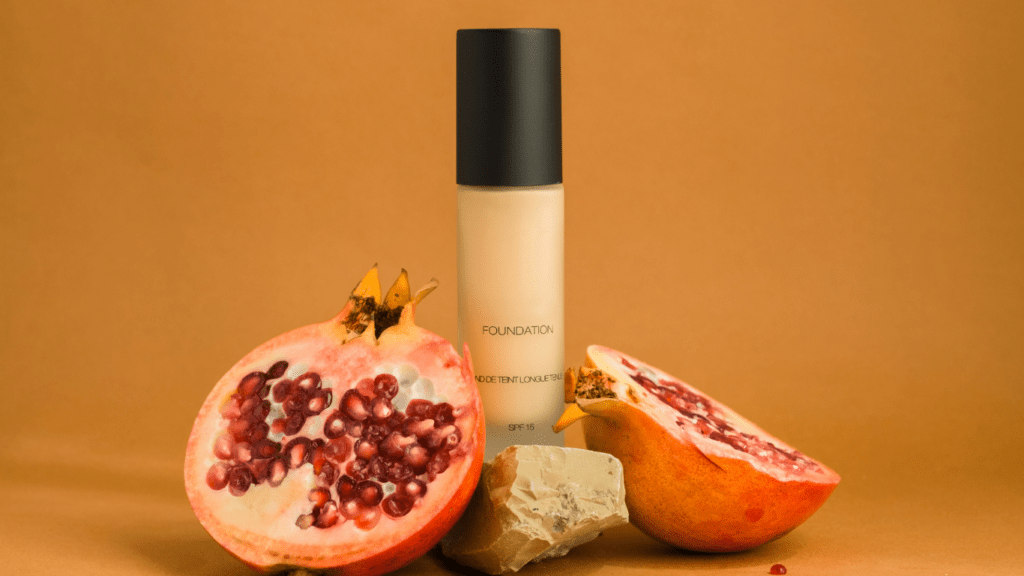Understanding Organic Skincare
Organic skincare integrates natural ingredients that promote skin health and environmental sustainability.
Definition and Principles
Organic skincare involves products made from natural ingredients grown without synthetic pesticides, herbicides, or genetically modified organisms (GMOs). Certified organic products follow strict standards set by regulatory bodies like the USDA or Soil Association. These standards ensure that ingredients maintain their natural properties, boosting skin health.
The core principles include using plant-based ingredients (e.g., aloe vera, chamomile) and avoiding harmful chemicals (e.g., parabens, sulfates). Organic skincare emphasizes holistic practices, prioritizing biodiversity and ecosystem preservation.
Misconceptions and Myths
Several misconceptions surround organic skincare. One common myth is that natural or organic automatically means safer or more effective. While organic ingredients are less likely to cause irritation, always check individual product formulations. Another myth is that organic products lack preservatives and therefore spoil quickly. In reality, many organic preservatives (e.g., vitamin E, rosemary extract) maintain product shelf life effectively.
Another misconception is that organic skincare is always more expensive. While some products may have higher price points, many affordable options exist, providing quality options for various budgets.
Key Ingredients in Organic Skincare

Understanding key ingredients in organic skincare helps make informed decisions that benefit both skin health and the environment.
Plant-Based Extracts
Plant-based extracts deliver essential nutrients to the skin. Aloe vera, for instance, hydrates and soothes irritated skin with its anti-inflammatory properties. Green tea extract provides antioxidants that combat free radicals and reduce signs of aging. Chamomile extract calms sensitive skin due to its anti-inflammatory and antiseptic qualities.
Natural Emollients
Natural emollients soften and moisturize the skin. Shea butter, rich in vitamins A and E, helps restore skin elasticity and provides deep hydration. Jojoba oil, mimicking the skin’s natural sebum, prevents moisture loss and balances oil production. Cocoa butter creates a protective barrier that locks in moisture and improves skin texture.
Essential Oils and Their Benefits
Essential oils offer various skin benefits through their therapeutic properties. Lavender oil, known for its calming effects, also promotes skin healing and reduces acne. Tea tree oil, with its antibacterial and antifungal qualities, effectively treats blemishes and prevents breakouts. Rosehip oil, high in essential fatty acids, improves skin tone and reduces scars and fine lines.
The Science of Efficacy
Understanding how organic skincare products work requires a look at the underlying science. I’ll explore clinical studies, ingredient comparisons, and skin health benefits.
Clinical Studies and Research
Research backs the efficacy of organic ingredients. A study by the Journal of Clinical and Aesthetic Dermatology found that green tea extract reduces inflammation and soothes the skin. Another study in the Journal of Ethnopharmacology demonstrated that aloe vera accelerates wound healing. These studies highlight how plant-based ingredients act as powerful skincare agents. The evidence supports using them to achieve optimal skin health.
Comparing Organic and Synthetic Ingredients
Organic ingredients offer different benefits than synthetic ones. Natural emollients like shea butter hydrate deeply. In contrast, synthetic emollients may clog pores. Essential oils such as tea tree oil possess antibacterial properties, while synthetic alternatives often lack these benefits. Organic ingredients, derived from plants, are typically less irritating than synthetic chemicals. When assessing skincare products, consider these differences to make informed choices.
Potential Benefits for Skin Health
Organic skincare products offer numerous skin health benefits. Aloe vera and green tea extracts protect against environmental damage. Ingredients like jojoba oil and shea butter moisturize and nourish, enhancing skin elasticity. Essential oils such as lavender and tea tree oil treat acne, reduce redness, and promote skin healing. Using organic ingredients improve overall skin health, making them an excellent choice for holistic skincare.
Common Challenges with Organic Skincare
Organic skincare has many benefits, but it’s not without its challenges. Here are some common issues users may encounter.
Shelf Life and Preservation
Organic skincare products typically have shorter shelf lives due to the absence of synthetic preservatives.
- Natural preservatives like vitamin E and essential oils can extend shelf life, but not as long as their synthetic counterparts.
- Storage conditions like temperature and humidity affect how long these products remain effective.
- Products may spoil faster if not stored in cool, dry environments.
It’s important to regularly check expiration dates and be cautious of changes in color, texture, or smell, which indicate spoilage.
Sensitivity and Allergic Reactions
Natural ingredients can sometimes cause skin sensitivity or allergic reactions. Ingredients like:
- essential oils
- nut oils
- plant extracts
Common allergens. Users with sensitive skin may experience redness, itching, or irritation. It’s advisable to conduct patch tests before using new products.
Reactions depend on individual skin types and sensitivities, so what works for one person may not work for another. Consulting a dermatologist can help identify safe ingredients and avoid potential irritants.
How to Choose the Right Organic Skincare Products
Selecting the right organic skincare products requires diligence and awareness. This section explains how to decipher product labels and recognize trusted certifications.
Reading and Understanding Labels
Labels on organic skincare products often contain a wealth of information.
Ingredients are typically listed in descending order by quantity. For instance, if aloe vera is listed first, it means there’s more aloe vera than any other ingredient. Look for recognizable, natural ingredients like jojoba oil, shea butter, or essential oils (e.g., lavender oil).
Understanding terms like “organic,” “natural,” and “non-toxic” is crucial. The term “organic” is regulated and usually indicates the product contains at least 95% organic ingredients. However, “natural” isn’t formally regulated, so it’s important to read ingredient lists carefully.
Certifications and Standards
Certifications are reliable indicators of a product’s authenticity. Look for logos from organizations like USDA Organic, COSMOS Organic, and Ecocert. The USDA Organic seal signifies that 95% or more of the ingredients are organically produced. Cosmebio COSMOS Organic ensures products follow rigorous standards for organic cosmetics.
Products without recognized certifications might not meet these strict standards. Prioritize items that have clearly defined certifications to ensure you’re making informed choices.


 Jewelldane Fultz is a skincare specialist and beauty enthusiast who has spent years studying the science behind healthy skin. Known for her expertise in formulating effective skincare routines, Jewelldane emphasizes simplicity and consistency to help people achieve long-lasting results. Her in-depth knowledge of skincare ingredients makes her a trusted source for anyone looking to enhance their natural glow.
Jewelldane Fultz is a skincare specialist and beauty enthusiast who has spent years studying the science behind healthy skin. Known for her expertise in formulating effective skincare routines, Jewelldane emphasizes simplicity and consistency to help people achieve long-lasting results. Her in-depth knowledge of skincare ingredients makes her a trusted source for anyone looking to enhance their natural glow.
